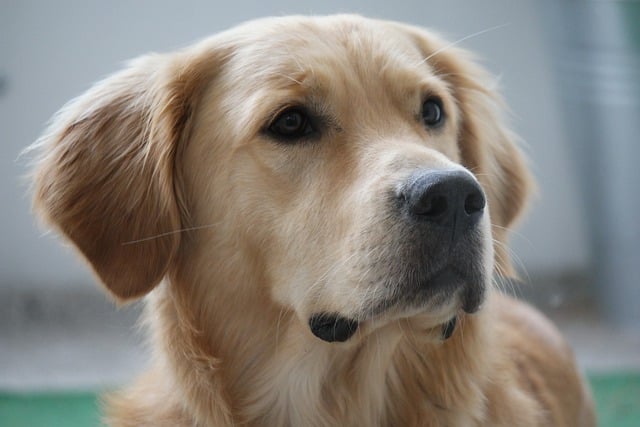
How do i train my dog to be obedient?
Watching your dog dart across the park ignoring your calls isn’t just frustrating—it can put them at risk near busy streets or public spaces.
Golden retrievers are bundles of joy, but their enthusiastic jumps can turn greetings into chaos. Beyond the inconvenience, many Western communities have strict pet conduct laws—jumping dogs may violate leash rules or public nuisance ordinances. Let’s explore practical, humane strategies to teach your pup polite greetings.
Golden retrievers jump naturally: it’s their way of seeking attention or connecting at eye level, especially when excited. Puppies often start playfully, and if we accidentally reward jumping with hugs or talks, the behavior sticks. The key? Redirect that energy into acceptable habits using their natural desire to please.
The most effective method: reward calm behavior, ignore jumps. When guests arrive, keep your dog leashed. Instruct visitors to completely ignore jumping—no eye contact, no words, no touch. The moment all four paws hit the ground, signal the guest to offer a treat and warm praise like "Good boy!" This teaches your retriever: calm = attention; jumping = nothing.
Mixed signals confuse dogs. Ensure every household member (and frequent visitors) follows the "no reward for jumping" rule. Practice with family first: take turns as "guests," repeating the routine until your dog anticipates the calm greeting ritual. Even a slight pat during a jump resets progress—consistency builds muscle memory.
 Link a cue like "sit" or "settle" to calm behavior. Start in a quiet room: hold a treat above their nose, moving it back so they naturally sit. Praise and reward instantly. Once mastered, use this command when someone approaches. If they start to jump, gently tug the leash, repeat the command, and reward only when they comply. Over time, the verbal cue alone will signal it’s time to stay grounded.
Link a cue like "sit" or "settle" to calm behavior. Start in a quiet room: hold a treat above their nose, moving it back so they naturally sit. Praise and reward instantly. Once mastered, use this command when someone approaches. If they start to jump, gently tug the leash, repeat the command, and reward only when they comply. Over time, the verbal cue alone will signal it’s time to stay grounded.
Prevent overstimulation by controlling high-excitement scenarios:
Doorbell desensitization: Ring it yourself when no one’s there, rewarding calm responses. Gradually add real guests.
Walk strategies: Keep leashes short in public. When spotting someone, position yourself between your dog and the person, asking for a sit until the path is clear or the person invites interaction.
Socialization: Expose puppies and adults to diverse people (kids, elders, folks with hats/coats) in controlled settings. Always reward gentle sniffs over jumps; if they leap, have the person turn away until calm.
A tired retriever is a polite retriever. These active dogs need 60+ minutes of daily exercise—long walks, fetch, or puzzle toys. Regular training sessions also boost focus: a 10-minute "sit-stay" practice before guests arrive can reduce initial excitement. A well-exercised dog is less likely to channel pent-up energy into jumping.
In most Western countries, dogs must be "under control" in public—meaning no aggressive or nuisance behavior like jumping on strangers. Violations can lead to fines or even breed-specific restrictions in some areas. Beyond legality, cultural norms value well-mannered pets: a dog that greets politely is welcome in cafes, parks, and homes, strengthening your bond with the community.
Training takes time—days for puppies, weeks for older dogs. Celebrate small wins: a half-second of four paws down is progress! If they slip up, stay calm—no scolding, which triggers anxiety. Instead, reset the scenario and try again.
With consistency and kindness, your golden retriever will learn that calm greetings earn far more love than jumps. Imagine stress-free visits and walks where your pup is admired for their manners, not excused for their enthusiasm. It’s a journey worth taking—for their happiness, your peace, and a harmonious place in your community.

Watching your dog dart across the park ignoring your calls isn’t just frustrating—it can put them at risk near busy streets or public spaces.

New puppy owners often find themselves rushing to clean up accidents before they set in, and that’s where puppy pad training becomes a game-changer.

If you've noticed your dog's waistline disappearing and your veterinarian has mentioned those few extra pounds, your first instinct might be to simply reduce the amount of food in their bowl.

Training a dog to use a designated spot indoors isn’t as daunting as many new owners fear, but it does take consistency and an understanding of your pet’s needs.

That moment of dread on a walk is all too familiar for many new dog owners. You see another dog approaching down the sidewalk of your neighborhood

If the sight of another dog on your neighborhood walk makes your heart sink as your own dog erupts into a frenzy of barking and lunging, you're not alone.